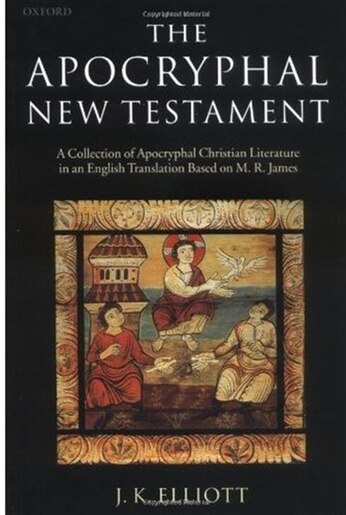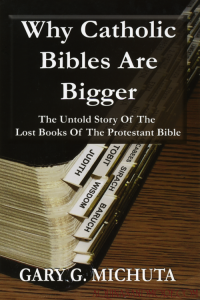The canon of the Hebrew Bible (the Jewish scriptures which are basically our Old Testament in a different order and with some differences) was set before the texts in the Apocrypha were written, so we also can’t rely on the acceptance of Judaism to validate them. They are not Scripture for the Jews, who don’t consider them divinely inspired. The contribution of the study of the Apocrypha and Pseudepigrapha to the understanding of the New Testament should not be underrated. The approach to Jesus that is typified by Schweitzer’s Quest of the Historical Jesus (1964) - using the context of 'Jewish apocalyptic' to help understand his activity - would not have been possible without the. The 39 Articles, which is used by both the Anglican and Episcopalian Churches, expresses in section six rejection of the apocryphal books as divinely inspired. The document does, however, view the books as useful to the church.
New Apocryphal Collectionsrejected Scriptures Study

Bible Question:
What Is The Old Testament Apocrypha? Is It Scripture?

- They also argue that when the New Testament writers quote Old Testament passages, they are quoting from the Greek OT. Since the Septuagint included the additional books of the Apocrypha, Jesus and the apostles must have accepted the Apocrypha as inspired scripture.
- The Apocrypha Is Never Cited In The New Testament As Scripture Though the New Testament cites directly, or alludes to, almost every book of the Old Testament as Scripture, it never cites the Apocrypha as being God's Word. The Apocrypha was not the Bible of Jesus or His apostles.
Bible Answer:
“Apocrypha” is from the Greek for “concealed” or “hidden” (cf. 2 Esd. 12:37-38; 14: 45-46), although in current Christian usage it has the sense of “set aside” or “withdrawn” from full canonical status as Scripture.[1]
There are two types of apocrypha books: Old Testament Apocrypha and New Testament Apocrypha. There are two types of Old Testament Apocrypha books. The first type we will refer to as the traditional Old Testament Apocrypha books. These books are included in only the Roman Catholic Bible. The second type of Old Testament Apocrypha books actually belong to the Old Testament Pseudepigrapha. The New Testament Apocrypha is not included in either the Roman Catholic or Protestant Bibles. Additional comments are made below about this group of books.
Old Testament Apocrypha

The traditional books of the Old Testament Apocrypha (200 B.C.) were composed before Christ and the apostles and as late as A.D. 100.[2] The Apocrypha is actually growing as discoveries of additional books are found. The latest additions to the Old Testament Apocrypha are the Apocalypses of Ezra and Baruch. The traditional Old Testament Apocrypha contains the following fourteen books.
1 Esdras
2 Esdras
Tobit
Judith
Esther, Additions to
The Wisdom of Solomon
Ecclesiasticus
Baruch
The Song of the Three Holy Children
The History of Susanna
Bel and the Dragon
The Prayer of Manasseh
1 Maccabees
2 Maccabees
All of the canonical Old Testament books are quoted by Christ or one of the New Testament books as Scripture, except for Ezra, Nehemiah, Esther, Song of Solomon, Lamentations, Obadiah, Nahum and Zephaniah (Matthew 5:17; 23:35; Luke 24:44). But the Old Testament Apocrypha is never quoted. Some want us to accept the Old Testament Apocrypha as Scripture because some of the early church fathers quoted from it, but none of the church councils quoted from it, except the Council of Trent.[3]
The Council of Trent of A.D. 1546 adopted the Old Testament Apocrypha as scripture and included it in the Bible. Geisler and Nix state,
The Council of Trent was the first official proclamation of the Roman Catholic Church on the Apocrypha, and it came a millennium and a half after the books were written, in an obvious polemical action against Protestantism. Furthermore, the addition of books that support “salvation by works” and “prayers for the dead” at this time (1546), only twenty-nine years after Luther posted his Ninety-five Theses, is highly suspect.[4]
That is, the Roman Catholic Church adopted the Apocrypha to fight against Luther and Protestantism. The Apocrypha contains books that teach the following:
– Salvation by works (Tobit 4:11; 12:9; Ecclesiasticus 3 :4)
– Prayers can be offered for the dead (2 Maccabbees 12:43-46)
– Selling of pardons to get an early release from purgatory
– Pay money for one’s sins to be forgiven (Tobias 12 :8, 9)
– Purgatory is real (Wisdom 3:1-4; 2 Maccabbees 12:43-46)
– Angels lie (Tobias 5 :15-19)
It is important to note that none of these doctrines are taught in the New Testament. It appears that the only reason the Roman Catholic Church adopted the Apocrypha as Scripture was to counteract the teachings of the Reformation.
It should also be noted that the 1611 King James Version Bible does include the Old Testament Apocrypha, but it is separated from the canonical books. Another important note for the reader is that there are other Old Testament Apocryphal books such as the following: Prayer of Manasseh and Psalm 151.
New Testament Apocrypha
It is important to note that some authors lump both the New Testament Apocrypha and Pseudepigrapha books together. When this occurs, this combined set is called either the New Testament Apocrypha or the Pseudepigrapha. Here we will make a distinction as does Geisler and Nix and list some books, which are used by some cults and liberals, as the New Testament Apocrypha (A.D. 70-170 or maybe as late as 4th century). This group is as follows:[5]

Epistle of Pseudo-Barnabas (A.D. 70-79)
Epistle of the Corinthians (A.D. 96)
Ancient Homily or Second Epistle of Clement (A.D 120-140)
Shepherd of Hermas (A.D. 115-140)
Didache or the Teaching of the Twelve (A.D. 100-120)
Apocalypse of Peter (A.D. 150)
Acts of Paul and Thecla (A.D. 170)
Epistle of the Laodiceans (~4th Century)
Gospel According to the Hebrews (A.D. 65-100)
These books are rejected by both Protestants and Roman Catholics and are not included in the Bible. Obviously the contents of the New Testament Apocrypha will vary depending on the claims of the cults, false teachers and liberals. This group of books is dynamic as new discoveries result in new books being add to this category.
Conclusion:

The Old and New Testament apocryphal books are not Scripture since neither Christ or the apostles of the New Testament quote from them. Additionally, they contain heretical teachings which disagree with the doctrine taught by Christ and the apostles.
References:
1. Achtemeier et al. Harper’s Bible Dictionary. HarperSanFrancisco. 1985. p. 36.
2. Geisler and Nix. A General Introduction to the Bible. Moody Press. 1973. p. 169.
3. Ibid., p. 171.
4. Ibid., p. 172.
5. Ibid., pp. 202-205.
Suggested Links:
What are the additional books of the Bible in the Catholic religion?Is the book of Enoch inspired?
Should the Deuterocanon be included in the Holy Bible?
What Is The Bible? – Discipleship Series
How accurate is the Bible?
What books belong in the Bible? – Canon of Scripture
New Apocryphal Collectionsrejected Scriptures Fulfilled
What is the Pseudepigrapha? Should it be in the Bible?
Is the book of Enoch inspired?
New Apocryphal Collectionsrejected Scriptures King James Version
What is the Tanakh and Talmud?